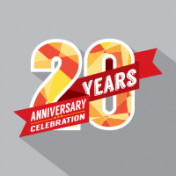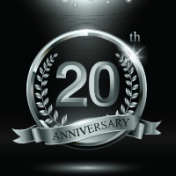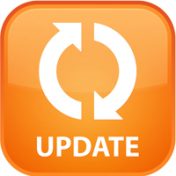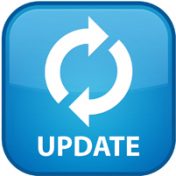We recently hosted a webcast covering the value and application of VSWarehouse through VarSeq. Not only is VSWarehouse a solution for storing your NGS data in a central repository, but it also provides a means to enhance the tertiary analysis done in VarSeq. VSWarehouse will store all your sample/variant data but also stores your catalogs of pathogenic variants, clinical reports, and has the capability of filtering/querying on all your stored data quickly. In addition,… Read more »
This webcast generated some great questions! If you have any other questions for me that are not answered below, please feel free to ask those by emailing support@goldenhelix.com. To what level does the Warehouse scale? We have tested multiple instances of Warehouse in-house and on the cloud and it scales incredibly well to tens of thousands of samples and 100s… Read more »
In my recent webcast, I demonstrated how VS-CNV users can detect high-quality copy number variant events. If you didn’t have a chance to join, you can view the recording below! This webcast generated a lot of great questions! If you have any other questions about the content covered in this webcast that is not answered below, please feel free to… Read more »
Genome-wide association studies (GWAS) are useful in genetics as they test for the association of a phenotype with common genetic variants. GWAS is “hypothesis-free” and does not require prior knowledge of a gene’s biological impact on a trait. The catch though is that this leads to analyzing hundreds to thousands of genome-wide array samples to elucidate single nucleotide polymorphisms (SNPs) associated with a specific phenotype.
Our “Processing Hereditary Cancer Panels in VarSeq” webcast was a great lesson for viewers to learn more about the functionality of our software. If you didn’t have a chance to join us for the live event, you can watch the recording on our site here. Q: What is the best place to get clinical interpretations of breast cancer variant interpretations?… Read more »
Are you curious how others are taking advantage of Golden Helix software to further their research and findings? Well, look no further, here’s a few of our customer’s publications for you to check out.
With this two-part blog series, users should now be able to perform CNV analysis using their data, set up basic quality filter standards to isolate high-quality events and utilize annotations to hone in on publicly known events as well as in-house recorded CNVs from previous projects.
In one month, Golden Helix will have been in business for 20 years! We know we couldn’t have done it without our great community, so we’d like to give a big thanks to all of our customers. Golden Helix President & CEO summarized the past 20 years and how it all happened in his recent blog post. Since you only… Read more »
If we take a look back in time, a lot happened in September 1998. It is the month in which the first ever “Who wants to be a Millionaire?” show debuted on ITV in Britain. Larry Page and Sergey Brin incorporated Google in September, registering the Google.com domain on September 15, 1998. And on that very same day, we officially… Read more »
The recent release of VSClinical gives users the ability to evaluate variants based on the 33 criteria according to the American College of Medical Genetic and Genomics (ACMG) guidelines. This feature leverages a variety of variant sequencing evidence including population data, functional data, and computational predictions while providing rich visualizations and auto recommendations to help answer challenging criteria. This highly… Read more »
In the last installment of this series, I covered the basics of variant interpretation and how it fits into the genomic testing process. Now we can cover in more detail how VSClinical works, what algorithms and annotation sources power the recommendations and how the ACMG criteria are organized into useful categories. VSClinical is built to make the process of evaluating… Read more »
Yesterday we launched VSClincial with our first webcast in what will be a series about this powerful new way to perform variant interpretation following the ACMG guidelines. In this post, I wanted to cover the motivation for VSClinical and how we curated and presented the 33 criteria from the ACMG Guidelines into an intuitive workflow with various bioinformatic evidence and… Read more »
The clinical interpretation of variants is time-consuming and requires attention to details. Clinicians are being asked to thoroughly review any variants that could potentially cause disease. There are guidelines for the interpretation of variants relating to hereditary risk, germline diagnostics, and molecular oncology panels, such as those issued by the American College of Medical Genetics (ACMG), which are nationally and internationally… Read more »
ClinVar is the NCBI variant database that focuses on the categorizing of variant alleles and their interpretation from a clinical standpoint. This has made it a great resource, especially for those seeking variant allele disease correlations and pathogenicity. And this all worked fairly well, but it was changed… Previously, the ClinVar variant track annotation took some time to curate due… Read more »
Ready to take your analysis to the next level? Our Small-Lab VarSeq PowerPack enables users to move their analysis from FASTQ to clinical reporting through one streamlined pipeline. Here’s what’s included: VarSeq VarSeq is an intuitive, integrated software solution for tertiary analysis. With VarSeq you can automate your workflows and analyze variants for gene panels, exomes, and whole genomes. VS-CNV… Read more »
I would like to congratulate our third and final winner of the 2017-18 Abstract Competition, Suxu Tan, a current PhD Student at Auburn University. Our first and second place winners, Michael Iacocca and Nicole Weaver, performed their research using VarSeq. Suxu, however, used SVS to conduct the research in his paper ‘GWAS analysis of QTL for resistance against Edwardsiella ictaluri in… Read more »
Our abstract competition is one of my favorite events because of the learning opportunity it provides our team. Each applicant’s submission tells us a unique story about how our software is helping users conduct their research. This year’s competition didn’t disappoint bringing a new round of fascinating studies to our attention. However, with all these great abstracts came the difficult… Read more »
2017 was an incredibly prosperous year for Golden Helix; we released a handful of new features, announced new partnerships and completed our end-to-end architecture for clinical testing labs. Our webcast series has become a very popular way for our community to stay up-to-date with our new capabilities and best practices in genetic analysis using our software. We had three webcast… Read more »
Golden Helix is excited to announce a new round of novel and updated annotations; including a frequency track, a region track, and a gene track. All three of these tracks were created with the use of VarSeq and its Convert Wizard functionality. First, the expansive 1000 genomes track (1kG) has been updated to include sub-population allele frequencies and heterozygous and… Read more »
With the recent release of VarSeq 1.4.7, we have expanded the concepts of our popular assessment catalog to include CNV and other region-based records and not just variants. To match these capabilities, we have made a major update to VSWarehouse that supports these new record types in the centrally hosted and versioned Catalogs and Reports. Review of the VSWarehouse Genomic… Read more »















